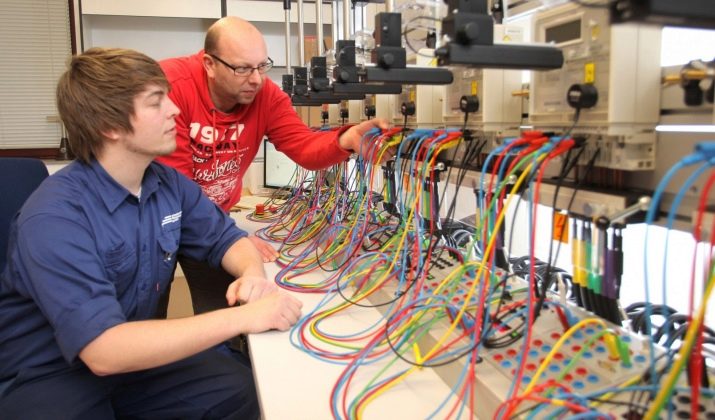In the modern world, the technological process is developing rapidly, the need for new professions is growing. Therefore, there is an urgent need for professionals who know their job. Such a profession as a communications engineer is no longer associated only with telephone cables and installation work. Her responsibilities and tasks have changed a lot since the work is connected with new equipment and modern technologies. You should learn more about this interesting profession.

Features
This profession arose at the end of the 19th century, when telephone exchanges appeared. The duties of specialists included the provision and construction of new lines, the organization of trouble-free operation of the equipment. Now this service area has a huge number of different specialties, one of the most important and necessary is a modern communications engineer.
This profession has been on the list of the most necessary and well-paid in the labor market for quite some time.
A leading specialist in this field should apply a large amount of knowledge in working with telecommunications and radio navigation, as well as in radar. The state professional standard and the ECTS reference book contain characteristics of the employee’s qualifications, determine their labor functions, necessary knowledge and skills. Since information systems are often replenished with innovations, a specialist in this industry should constantly increase his knowledge.

What does he do?
The definition of “communication” is very ambiguous, it covers the worldwide network, telephone and wireless communications, satellite dishes, IP-telephony and local area networks.A specialist should maintain and ensure all this equipment trouble-free operation, install line-cable structures and connections, connect and create local networks, install satellite dishes and conduct Internet. The spread of Internet systems, satellite television and mobile communications makes this profession very popular, because users often need wireless communications and the Internet, therefore they often turn to specialists in this profession.
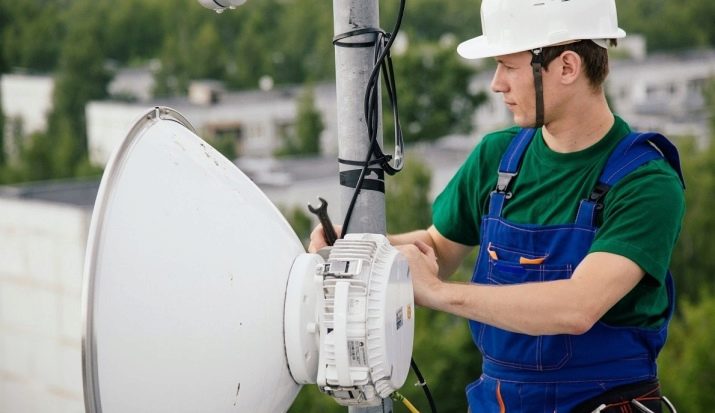
Responsibilities
All the duties of a representative of this specialty are established in the job description, with which the employee will be familiarized upon admission to work.
- He must exercise control over all professional equipment, carry out the installation of cable equipment, connect user stations, check and ensure their adjustment, maintaining in working condition.
- Develop annual plans for the repair and replacement of elements of technical equipment. To accept and consider complaints about malfunctions of technical equipment assigned to it, take measures to eliminate breakdowns and analyze the causes of their occurrence.
- A communications engineer is directly involved in introducing new equipment into operation, draws up applications for necessary spare parts and consumables, participates in the development of planned measures to improve the operation of communication equipment and its effective use, to prevent downtime. Conducts safety training and production training for its subordinates, complies with labor law requirements.
- It is mandatory to keep records of the health of the equipment, as well as its damage and the causes of their occurrence. An engineer develops and implements measures to prevent malfunctions, takes a direct part in the development of technical specifications and the design of telecommunication facilities.
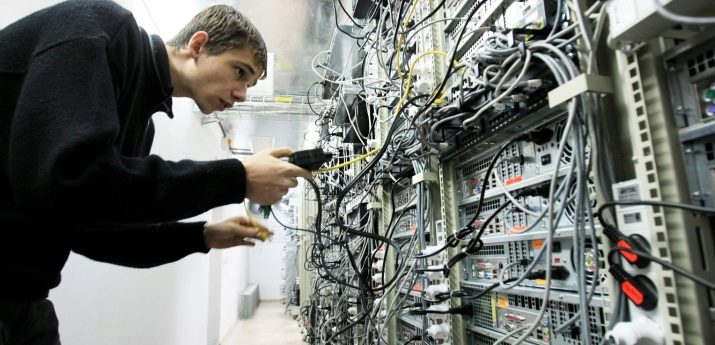
Very important features for specialists in this field are responsibility, attention. After all, you have to work not only with equipment, but also with people. A communications engineer must be stress-resistant, must be able to find a common language with the team, transfer his experience to them, be able to quickly respond and make decisions in critical situations.
Working in small organizations, a communications engineer should be a universal, since the staff of his department is very limited, and he will require maximum knowledge of all the subtleties from connecting IP networks to decrypting drawings and diagrams. He has a great responsibility, which is provided for in the job description. He is responsible for non-compliance with internal labor regulations.
He is obliged not to disclose information about the organization, not to use his official position within the framework of his competence and authority.

Education
To qualify for a good job in the field of telecommunications, you need to graduate. Such specialties as Telecommunications and Communication Systems, Television, Radio Communication and Broadcasting are suitable for this. Many institutions work directly with companies that provide communication services. They send their best students to these enterprises for internships. Therefore, the most gifted students already in the third or fourth year find a permanent job thanks to practical exercises.
Students in-depth study of mathematical analysis, programming and other technical disciplines, a lot of time is devoted to studying communication theory. Employers are eager to invite graduates of faculties related to radio engineering and telecommunications to work.
In Russia there are a large number of higher education institutions where you can get higher education, undergo advanced training or retraining.
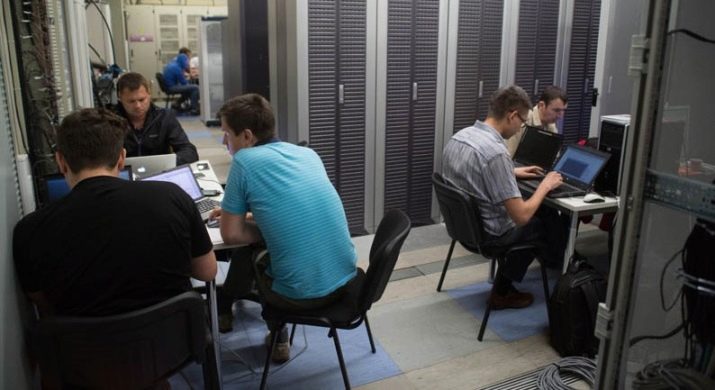
For instance, At the Modern Scientific and Technological Academy, you can listen to retraining courses that last 3.5 months. University of Research Higher School of Economics invites students to the faculty of "Infocommunication Technologies and Communication Systems". A lot of other universities in Russia invite young people to study in both full-time and part-time departments, where there is the opportunity to study on a budgetary basis. A specialist who has graduated from one of these universities should be constantly interested in new products in the field of communications, communicate with more experienced colleagues and receive knowledge from them, which he can then put into practice.
Job
A specialist with higher education can expect to work with a high salary. Even without a seniority, graduates can work fruitfully in telecommunication organizations, where they will be offered the work of a mobile operator. Today there are a lot of such companies, so young specialists will not have to look for a job for a long time. Beginners try to complete all the tasks of the employer. Initially, they will be supervised by experienced employees who help to gain experience and skills in this profession. For this, it is necessary to take the initiative and strive for self-development. Only with the acquisition of special skills and seniority can you apply for a more paid job, as well as for career growth.
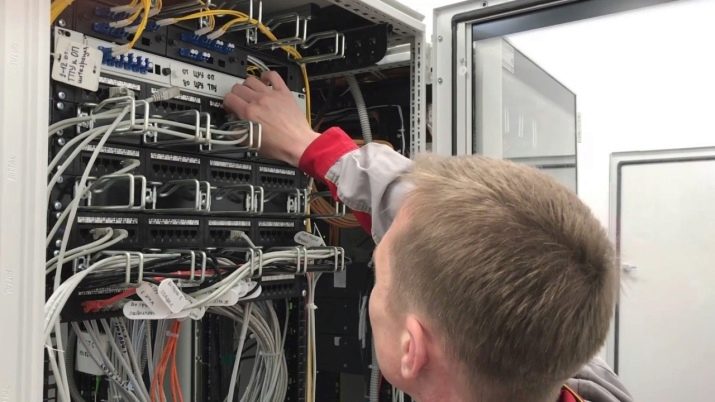
A communications engineer can work in various companies that specialize in developing promising technologies.
Usually they are looking for a specialist with work experience of 3 years or more, who will be involved in the installation and launch of telecommunication equipment, the administration of maintenance control systems, conduct testing of channels and measure them, and complete all design documentation.
Large companies that specialize in providing Internet services to the public and enterprises constantly require communication engineers who will be involved in connecting television, telephones and the Internet, travel as part of a team to a subscriber, configure and connect network equipment, carry out installation work and fiber optic installation.
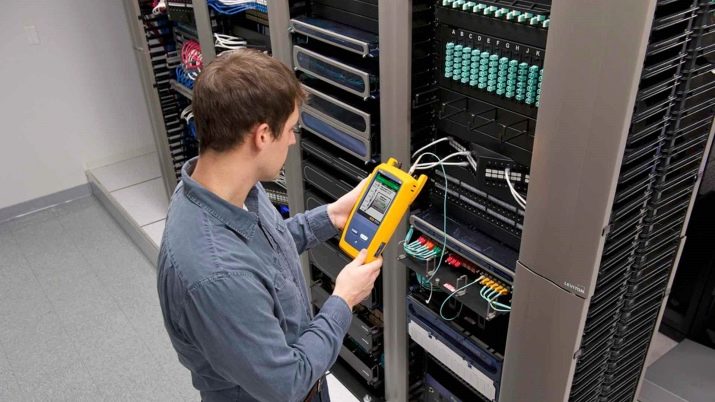
In different regions of the country, this profession is paid differently.
The level of payment depends on the population of the region and the companies located in the region. The larger the city, the more people need representatives of this profession. For example, Moscow has the highest salaries, as well as in St. Petersburg. An experienced specialist can receive from 20,000 to 40,000 rubles. per month. In St. Petersburg, without work experience, you can earn from 20,000 to 25,000 rubles. depending on the size of the company and the needs of the employer. On average, in Russia you can find work with a salary of 30 to 100 thousand rubles.
